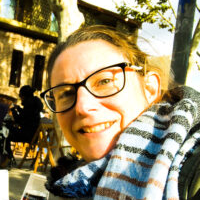According to the United Nations, there is an existing and persistent gender gap in science, technology, engineering and mathematics fields (usually referred to as the STEM). At present, less than 30 per cent of researchers worldwide are women. Science and gender equality are both vital for the achievement of the internationally agreed development goals, including the 2030 Agenda for Sustainable Development. Over the past 15 years, the global community has made a lot of effort in inspiring and engaging women and girls in science. Yet women and girls continue to be excluded from participating fully in science.
![]()
Even woman represent half of the world population, according to UNESCO data, only the 28.8% of global scientists are woman. When talking about prizes, the situation gets worse: only the 3% of the Nobel Prize awarded in the three scientific categories – physics, chemistry and medicine - are woman. Only 17 woman have been awarded that prize, since Marie Curie first won it on 1903, in comparison to the 572-awarded men.
Globally, only 5% of enrolled students in natural sciences, mathematic or statistics are women; in engineering or manufacturing, they represent only the 8% of the total students. One of the main causes of this is the biases and stereotypes, and the lack of public figures and referents. Female representations onscreen also influence how young girls perceive these jobs; according to the Geena Davis Institute, only 12% of the characters that have a STEM-related job in films are women.
Learn more about the gender gap in science visiting the Women rights infographics
We introduce you four of our ICCUB researchers; Anna Ferré-Mateu, Mercè Romero, Assumpta Parreño and Licia Verde. All of them are physicist, working in the fields of astronomy, cosmology and nuclear and particle physics. They develop their research at the Institute of Cosmos Sciences, and work daily at the Faculty of Physic sin the University of Barcelona.




Mercè Romero is an astronomer and one of the members of the Gaia group at eh University of Barcelona. She investigates about the structure and kinematics of the galaxy through Gaia data, and makes predictions based on galactic models.
Assumpta Parreño is a professor of the Faculty of Physics, and deputy director of our Institute. She is a nuclear physicist, and researches about the elementary particles of matter, such as quarks and gluons.
Anna Ferré-Mateu is also an astronomer, and her studies try to shed some light into the puzzle of formation and evolution of galaxies. One of her interest is to understand how sizes, shapes and stellar populations of galaxies change over cosmic time, and their relation with supermassive black holes.
Licia Verde is a cosmologist, ICREA professor and was awarded with the Catalonian National Research Award of 2019. Licia studies the origin and evolution of the universe, the initial conditions of the primitive universe and dark matter.
The International Day of Woman and Girls in Science was decided by the General Assembly of the United Nations. The day recognizes the critical role women and girls play in science and technology. The International Day of Women and Girls in Science is implemented by UNESCO and UN Women, in collaboration with intergovernmental agencies and institutions, as well as civil society partners, that aim to promote women and girls in science.The day's purpose is to promote full and equal access to participation in science for women and girls.
